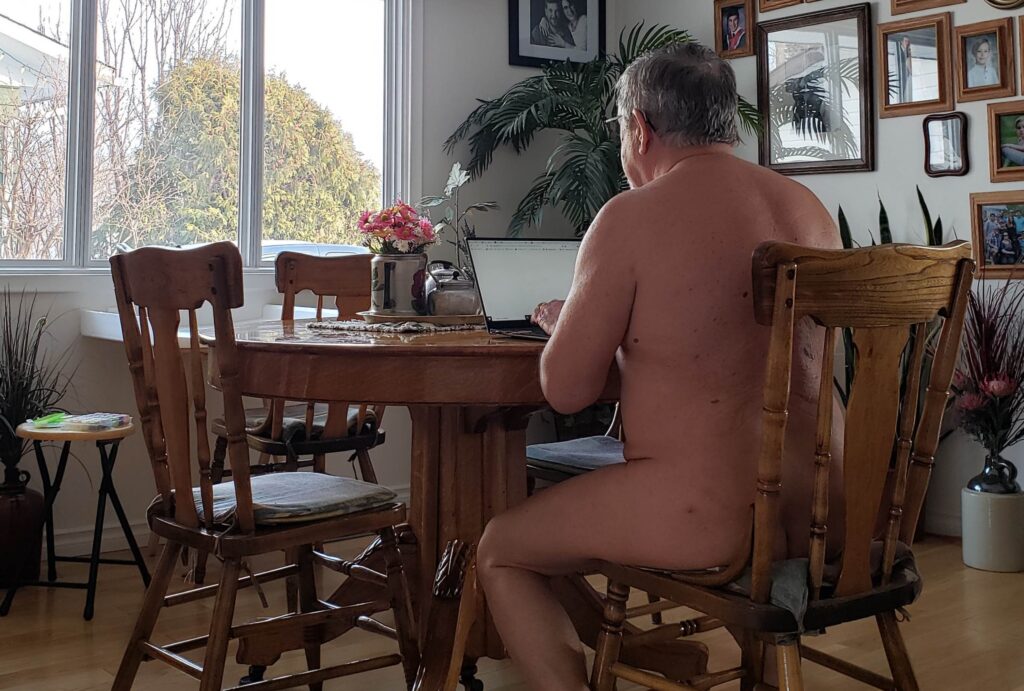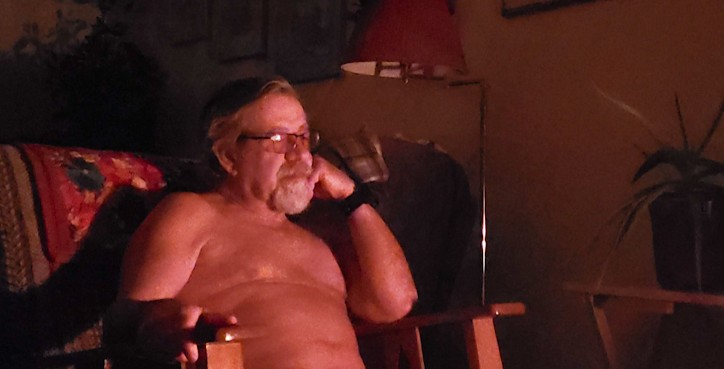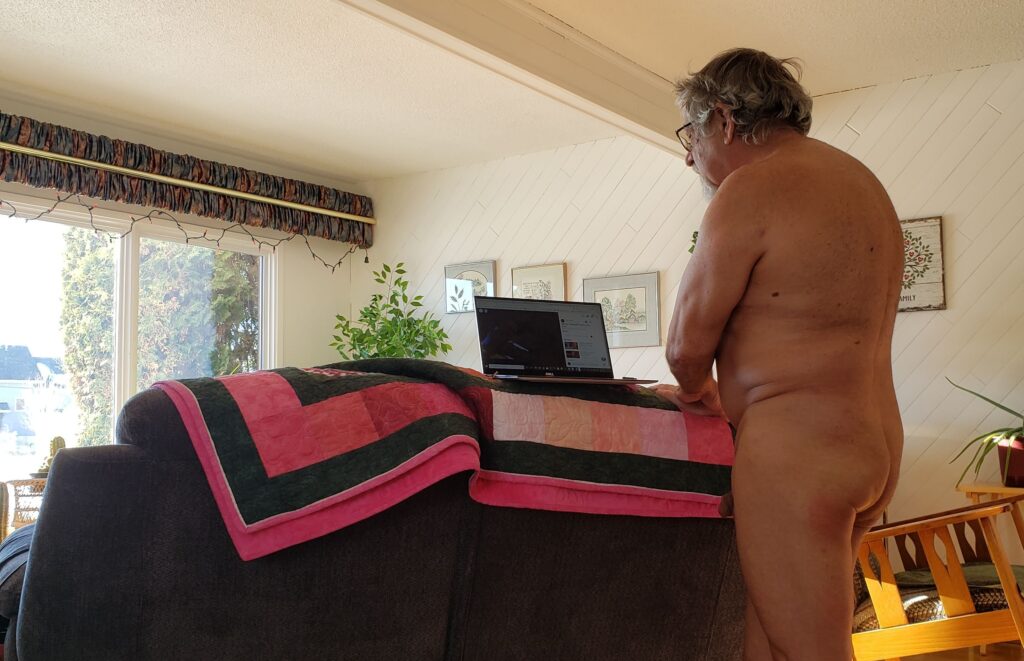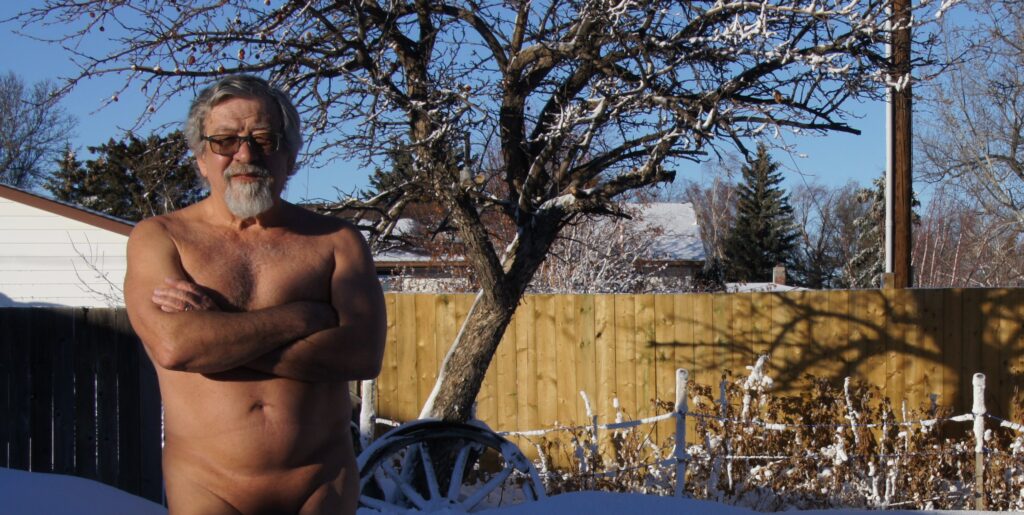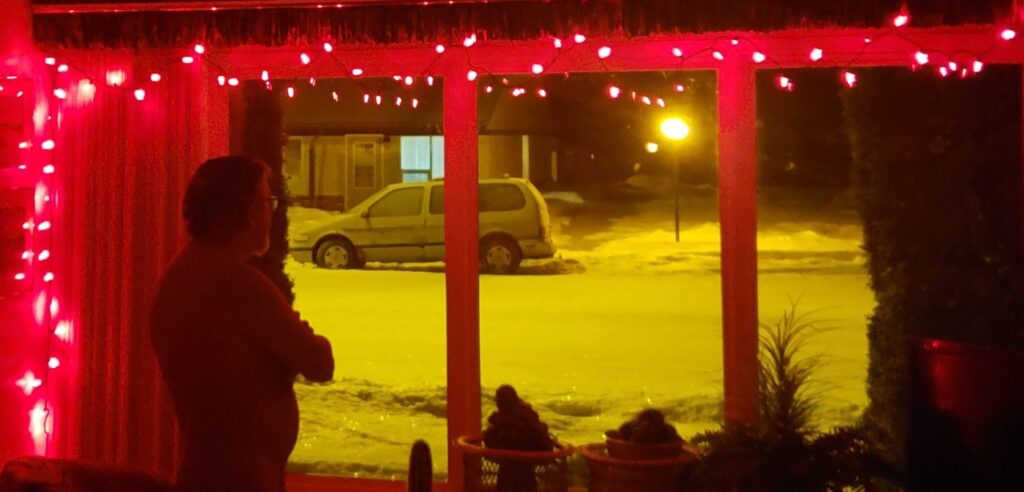It is early morning, very early. There are lights in the window across the street from the lodging of a man who is older than myself. Lights on are no guarantee that he is awake. I turned on my strings of red lights to counteract the darkness that marks the early morning hours of winter on the Canadian prairies.
Despite the sad state of the world at this point in time, I had a good sleep. Getting a good sleep is nothing to be sneezed at. I have too often woke up in the morning more tired than when I went to bed because sleep was a hit and miss affair throughout the night hours. I don’t take naps during the day and not because of some sort of guilt or resistance. I have tried, but when the sun is up, even when it is overcast, my body refuses the offered opportunities.
At least I am naked, whether I am tired, listless. I did a quick Google search and found this: “Are you tired, so tired of everything about the world and the way it is? Do you proclaim this, with a long, slow sigh, to everyone around you? You’ve got ennui.” Despite what the English language dictionaries want to tell us, ennui isn’t just about boredom. It’s a French word with a broader definition, one that the above quote comes close to recognising.
I am tired with regards to Covid19. I am tired with the BS of Canadian politics that wants to drag people into divisiveness and hate of others who are different. I am tired of the war of words that erupts into violence all over the world. I am tired of those who are so invested in protecting their wallets that they have no time to protect the world and fellow humans. That tiredness isn’t about boredom, not in the least.
That tiredness is more about the scope and breadth of the issues that are raging all over the modern world, and one’s inability to make much of a difference. I watch as extended family and acquaintances horde and scapegoat women, people of colour, the homeless, basically anyone who might shame them into doing the right thing. And the feeling that emerges isn’t boredom. The English language doesn’t really have a word for this. So, as a French-Canadian, I accept the non-English concept of ennui to describe how I feel.
Language is a problem in communication. I learned the concept of “negotiated” meaning when I began work on my Master’s program thirty years ago. Though we share the same language, perhaps with both sides limited to that one language, we can’t assume that the words spoken or written are heard/read in a manner that has both share the same understanding. It the world of social media, there is a tendency to have sound bites without careful dialogue to sort out the meaning and intent of the words used. And then, we wonder why others get angry at our words which were never intended to inspire anger.
Words are powerful. Words incite. Words tame. Words attack. Words confuse. Words embrace … When we speak and write, we have an intention, we assume that others can infer our intended message from the words we use. In the world of social media, the face-to-face component of communication exacerbates the problem. Missing are the barely perceptible body cues that add meaning to words, sometimes contradicting the words themselves. Even silences have communicated meaning that need to be decoded via negotiation.
Left to our own inner dialogues that have almost everything to do with our unique life experiences, as well as our unconscious complexes, we create meaning based on “self.”
“This is what I heard her say” is followed up with a personal take that rarely has anything to do with the intended message. And the war is on where neither side can “hear” the words of the “other.” Lines are drawn in the sand leaving both parties convinced of the “wrongness” of the other person in the “conversation.”
And once that happens, it is so hard, often too hard, to step back and ask legitimate questions to clarify what was meant with the original statement. For that to happen, both sides have to be willing to let go of what they hold as self-evident truths. Without that, there is no “dialogue” where both parties through negotiation arrive at a mutual understanding. It’s a lot of work. It’s easier to retreat into conflict knowing that you are right and that the other is wrong, that you have “god on your side.”
So now, we find ourselves as individuals, shaken to the core by the recent events in the USA and by the Covid19 pandemic. Where and how, do we dare to engage with each other to negotiate peace? It begins with listening and asking authentic questions, laying aside assumptions. There is no other way.
